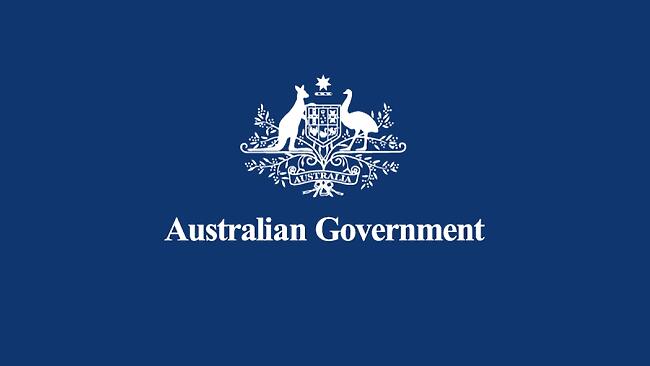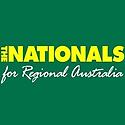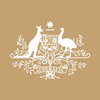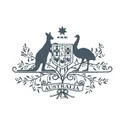
Constitution Alteration Bill Summing Up Speech
I thank all honourable members who have contributed to this debate.
The work, leadership and stories of countless Aboriginal and Torres Strait Islander peoples have brought us to this point in our journey to constitutional recognition. I acknowledge and thank them.
I would particularly like to acknowledge and thank the Minister for Indigenous Australians. I am proud to be a member of the same Caucus, and a member of the same Cabinet, as the Member for Barton – and it is a privilege to work with her on this important national project.
And I would like to acknowledge and thank Senator Patrick Dodson in the other place for the work he has done over so many years to advance the cause of reconciliation – including in this term of Parliament as the Special Envoy for Reconciliation and the Implementation of the Uluru Statement from the Heart.
I also thank those many non-Indigenous Australians who have worked towards constitutional recognition and the development of the Voice.
This Bill is a critical step in fulfilling the first request made in the Uluru Statement from the Heart.
If approved at the referendum, there will be four simple lines inserted into the Constitution.
Those lines will finally recognise Aboriginal and Torres Strait Islander peoples as Australia’s first peoples in our founding legal document after more than 120 years of exclusion and omission.
Those lines will enshrine an Aboriginal and Torres Strait Islander Voice in the Constitution.
And those lines will ensure the Voice can make representations to the Parliament and the Executive Government about matters relating to Aboriginal and Torres Strait Islander peoples, while allowing the Parliament the flexibility to respond as the Voice evolves and the needs of First Nations peoples change.
The Voice is the form of constitutional recognition Aboriginal and Torres Strait Islander delegates called for in the Uluru Statement. Through the Voice, we will listen to Aboriginal and Torres Strait Islander communities to create practical change, and make a difference where it matters – in areas like employment, health, education, housing and justice.
I would like to address three issues that were raised by opponents of the Bill over the course of this debate.
The first is the assertion – the extraordinary assertion – by the Leader of the Opposition that the Voice would somehow put race into the Constitution. As the Prime Minister noted in his Second Reading Speech, that contribution from the Leader of the Opposition was simply unworthy of the alternative Prime Minister of this nation.
I welcome the repudiation of the Leader of the Opposition’s misleading comments by some of those opposite, including by the Leader of the National Party.
This Bill would not introduce ‘race’ into the Constitution.
In the words of the former Chief Justice of the High Court Robert French, the proposed constitutional alteration contained in the Bill would represent “a significant shift away from the existing race based legislative power that the Commonwealth has with respect to Aboriginal and Torres Strait Islander people”.
And that is because the proposed alteration would recognise Aboriginal and Torres Strait Islander peoples not as a race – but as the First Peoples of Australia.
How can anyone possibly argue that this is about race?
As I said in my second reading speech, Aboriginal and Torres Strait Islander peoples have occupied the Australian continent for over 60,000 years and represent the oldest continuous living cultures in human history. They have maintained a relationship with Australia’s land, waters and sky since time immemorial.
The Australian Constitution has never recognised the unique status of Aboriginal and Torres Strait Islander peoples as the First Peoples of this country. That is what this Bill does – that is what the Voice would do.
This is the form of constitutional recognition sought by Aboriginal and Torres Strait Islander peoples in the Uluru Statement from the Heart.
And that leads me to the second issue raised by opponents of the Bill – and that is the suggestion that the Government should pursue an alternative, merely symbolic form of constitutional recognition.
The history of the debate around constitutional recognition points to two significant problems with this suggestion.
First, symbolic recognition – through a constitutional preamble – has previously been rejected by Australians at a referendum on 6 November 1999. That preamble proposal would have recognised, among other things, the special place of First Nations people for (and I quote) ‘their deep kinship with their lands and for their ancient and continuing cultures’.
Less than 40% of voters nationwide said ‘Yes’ to the preamble and it failed to achieve majority support in any state or territory.
The second problem with the idea of symbolic recognition is that it was consciously rejected during the consultation processes that led to the Uluru Statement from the Heart. Merely symbolic recognition has been comprehensively rejected by First Nations peoples.
In the Kirribilli Statement, presented by 39 Indigenous Leaders to then Prime Minister Tony Abbott and Opposition Leader Bill Shorten – a key step leading to the Referendum Council and its consultations – clearly stated that an approach to recognition centred on a preamble would not be acceptable to Aboriginal and Torres Strait Islander people.
The same view emerged from the First Nations Regional Dialogues held over six months, from late 2016 in 12 locations around Australia. The purpose of the Dialogues was to try to reach agreement among First Nations people on whether and how they would like to be recognised in the Australian Constitution.
The Uluru Statement from the Heart clearly reflects the outcomes of those Dialogues and the National Constitutional Convention. The Statement respectfully requests (and I quote) ‘substantive constitutional change and structural reform’ – a process to alleviate ‘the torment of powerlessness’ that is felt by Aboriginal and Torres Strait Islander people, by offering them a means of influencing their own destiny. This cannot be achieved through symbolic recognition alone.
The language of the Uluru Statement from the Heart is striking. And it reflects the comprehensive process preceding it: the Regional Dialogues and the National Constitutional Convention at Uluru.
Constitutional recognition through a Voice is the request of a broad consensus of First Nations people. It is a considered and generous request that is the result of wide consultation and a robust, inclusive deliberative process.
The Referendum Council concluded that a preamble alone could not give sufficient recognition to Aboriginal and Torres Strait Islander peoples. A Voice offers recognition that would, the Council said, have ‘both substantive and symbolic value’.
The Government agrees.
The third issue that has been raised by some members of this House over the course of this debate is whether subsection 129(ii) would require the Executive Government to consider the Voice’s representations or consult the Voice before making decisions, and queried whether this could lead to protracted High Court litigation.
As outlined in my second reading speech and the explanatory memorandum, and confirmed by many of Australia’s foremost legal and constitutional experts, section 129 would not have this effect.
Subsection 129(i) guarantees the existence of the Voice.
Subsection 129(ii) guarantees the Voice’s core representation-making function.
Subsection 129(iii) confers upon the Parliament a broad power to make laws on matters related to the Voice, without detracting from the guarantees in subsections 129(i) and (ii).
Under subsection 129(iii), the Parliament will have the power to legislate about whether representations by the Voice need to be considered by the Executive Government, and if so, in what circumstances.
After careful consideration, the Government deliberately amended subsection 129(iii) of the draft provision to make clear the primacy of the Parliament.
My submission to the Joint Select Committee on the Aboriginal and Torres Strait Islander Voice Referendum enclosed the opinion of the Solicitor-General on proposed section 129.
Consistent with the views of the overwhelming consensus of constitutional experts, the Solicitor-General advised that proposed section 129 would empower the Parliament to specify in legislation whether, and if so, how, Executive Government decision-makers are legally required to consider relevant representations of the Voice.
In short, Australians can have confidence in this constitutional amendment – and confidence that constitutional recognition through a Voice will work.
The Voice as proposed in this Bill would amplify the voices of all Aboriginal and Torres Strait Islander peoples. Should the referendum pass, there will be a public consultation process to settle the design of the Voice, including how it will connect with communities and work alongside existing organisations. The Voice will represent the diversity of views and needs of Aboriginal and Torres Strait Islander communities to the national Parliament and Government.
The design of the Voice would build on the progress of the States and Territories in listening to Aboriginal and Torres Strait Islander peoples. It would build on the design work of Professors Calma and Langton which emphasised the importance of local and regional voices. It would build on the work of the Uluru Dialogues. It would build on the Voice design principles agreed by the Referendum Working Group.
If the Parliament and the Executive Government take communities’ perspectives into account in developing, enacting and implementing laws and policies, those laws and policies will be better targeted from their inception and lead to improved outcomes.
In this way, the Voice would help drive change to close the gap.
This Bill is the product of a comprehensive and lengthy process to determine the right form of constitutional recognition for Aboriginal and Torres Strait Islander peoples stretching over more than a decade. This includes the Referendum Council’s Regional Dialogues and the National Constitutional Convention, to which I’ve already referred.
In the lead up to introduction of this Bill, the Government established the Referendum Engagement Group, the Referendum Working Group and the Constitutional Expert Group to provide advice on the draft constitutional provision.
The Constitutional Expert Group examined in detail the proposal put forward by the Prime Minister at the Garma Festival last year, and found it to be a solid basis for the constitutional alteration.
As a result of this process, the Government refined and improved upon that proposal to clarify and broaden the scope of the Parliament’s power, and to ensure that the provision fits seamlessly within the Constitution.
The Bill has also been subject to rigorous and robust public debate and scrutiny, including through the Joint Select Committee’s inquiry. The overwhelming majority of legal experts have concluded that it is constitutionally sound. The Committee recommended, after reviewing significant evidence through hearing and submissions, that the Bill be passed unamended. The Government thanks all those who contributed to the Committee inquiry by making a submission or giving evidence, and thanks the members of the Committee for their thorough and thoughtful consideration of the issues.
It has been just over six years since more than 250 Aboriginal and Torres Strait Islander delegates gathered at Uluru, ‘from all points of the Southern Sky’ to make this modest request for Voice, Treaty and Truth.
We in the Parliament have spent many hours discussing how to fulfil the first part of that request – a request built on more than a decade of work. But it will soon be up to all Australians to make a choice.
It will be up to the Australian people to take the opportunity offered by the Uluru Statement from the Heart in 2017, an opportunity for our nation to do better, to come together, and to walk towards a better future.


